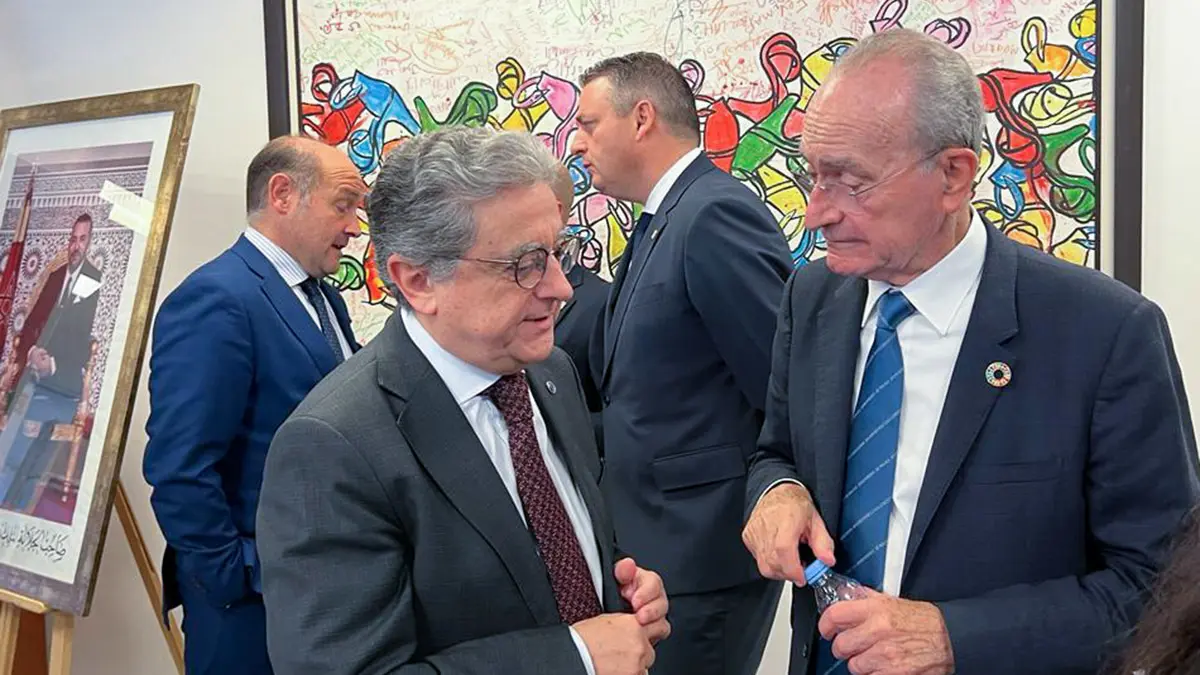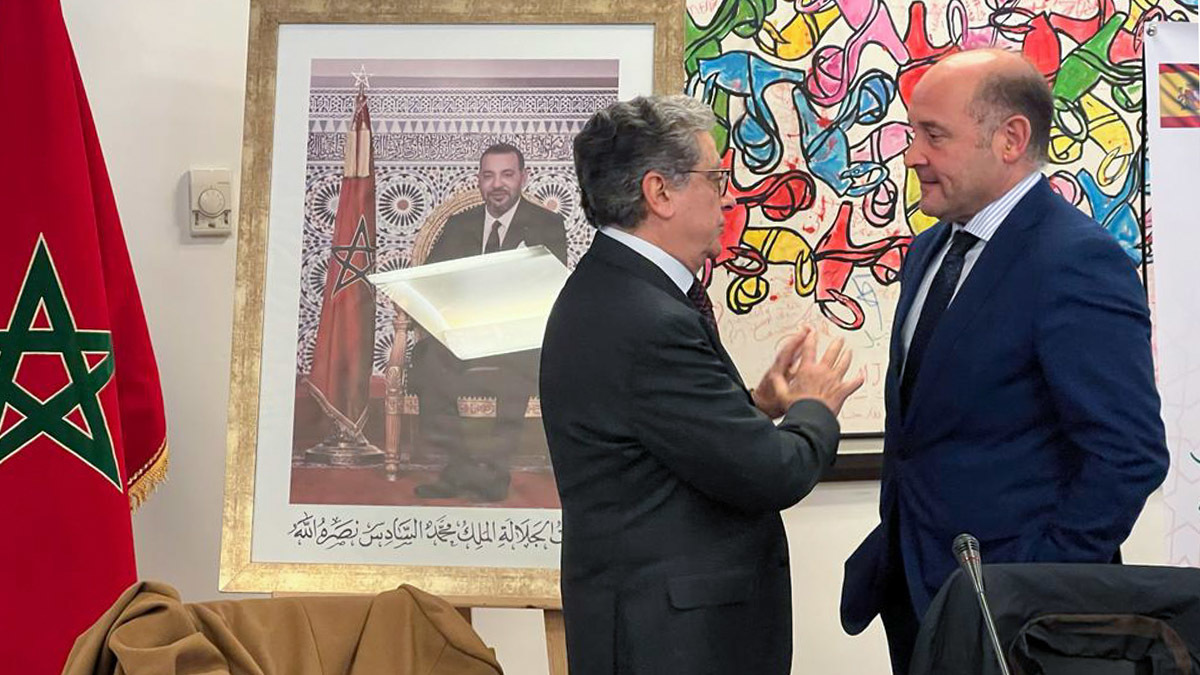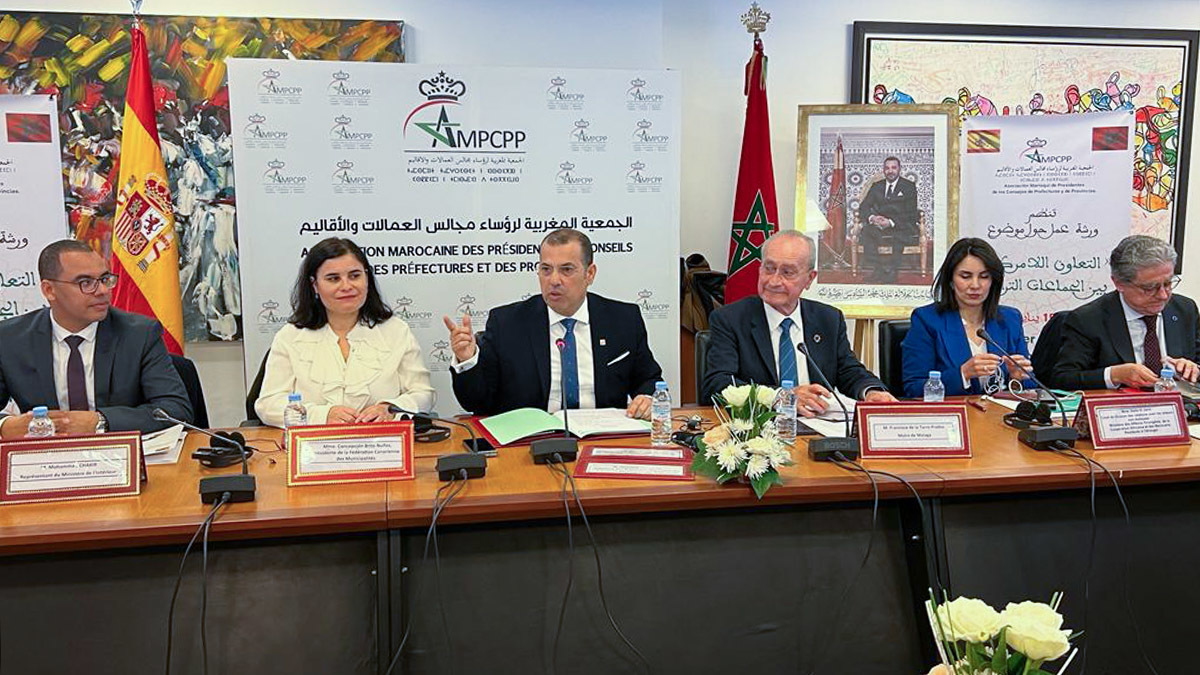Morocco and Andalusia maintain their willingness to strengthen mutual cooperation

With the aim of deepening relations between Morocco and Spain, the Moroccan Association of Presidents of the Councils of Prefectures and Provinces (APCPP) organised a workshop on Decentralised Cooperation of Territorial Collectivities at the National Library of Morocco.
The event in Rabat served as a meeting point for governmental and territorial authorities from both countries to share experiences on decentralised cooperation.
Atalayar was able to speak in Rabat with Enrique Millo, Secretary General for External Action, European Union and Cooperation of the Andalusian Regional Government, who highlighted the deep mutual cooperation that exists between Morocco and Spain.

Mr Enrique Millo, what is your assessment of this conference on the decentralisation of cooperation between Spain and Morocco? Especially from a community like Andalusia, which should be at the forefront of this cooperation.
Well, frankly, my assessment is very positive because it has been a very intense working meeting in which we have been able to share experiences, to put common projects on the table.
We have been able to review this history that goes back to the 1990s, when this relationship of cooperation between Morocco and Spain began, especially from Andalusia, and, above all, we have been able to plan activities. I think it is a positive relationship, because, frankly, what has become clear is the will of both parties to continue working together and to strengthen this cooperation between Andalusia and Morocco.
Can we talk about specific sectors that you would recommend when it comes to implementing this cooperation or even expanding it?
There are very different areas. We can talk about culture, education, trade and business, and the economy.
So, the area of infrastructure, cooperation for training, for youth exchanges. So there are different sectors that, in short, what they do is strengthen ties, promote mutual knowledge and benefit both parties, because in this type of cooperation, normally everyone wins, and therefore, this proximity and this geographical reality of Morocco as the gateway to Africa and Andalusia as the gateway to Europe.
The two continents united by the 14 km difference in the Strait of Gibraltar oblige us to place great emphasis on the potential of this cooperation. Therefore, these are the sectors that I believe can potentially be of most benefit to both parties in working together.

It would be desirable to recover these sectors and for there to once again be cross-border funds to strengthen and finance this type of policies and cooperation.
Of course, this has been a recurring theme. The European Commission, at the time, launched this concept of cross-border cooperation funds to improve relations in this area between the European Union and Morocco, also understanding that Morocco is a country that is making a very important commitment to lead the future of the African continent.
And, therefore, there are a series of very important elements that arise from the benefits that this cooperation can provide in areas as complex as security, irregular immigration and terrorism.
It is a very important form of cooperation for many reasons. With regard to these European funds, which were once earmarked for this cooperation, we must do everything possible to recover them, to maintain them and even, if possible, to increase them and to put on the table all the elements that unite us, to leave to one side the elements that may generate more controversy and to seek the possibility of maintaining these funds.
To this end, local and regional support is essential, which is why we talk about decentralised cooperation, but the support, obviously, of the Spanish Government and the Commission of the European Union is fundamental. And I am convinced that we will find ways to achieve this.
In this regard, the Andalusian Regional Government has a foundation, a very useful tool that works with excellent results, which is the Three Cultures Foundation of the Mediterranean.
I believe that this is an unprecedented example in the Mediterranean and practically the whole world, because it is a foundation, the Three Cultures Foundation of the Mediterranean, which is managed precisely by Morocco and Andalusia and whose purpose is precisely to promote dialogue, understanding and peace between the three cultures of the Mediterranean and, therefore, Christians, Muslims and Jews meet there to work together, promoting understanding, knowledge and friendship, etc.
And this is where cultural, educational and economic activities are organised. And it is a particularly important tool, as I have said, which we also make available to other countries so that they can learn about this experience and use it as a platform to find a space for work, dialogue and options to work together for a better future.

In this turbulent world, the relationship with Morocco is strategic, it is our natural partner, above and beyond political issues, and a relationship with a neighbour like Morocco, which is so important, should be part of the national political pulse.
Of course, for historical reasons, for cultural reasons, for economic and commercial reasons and, as I said before, also for issues related to security, immigration, etc., our relationship with Morocco is a priority relationship, it is a priority country with which we have a historic relationship of friendship and neighbourliness and we have once again expressed our desire for this relationship to be strengthened, improved and for us to continue working together on joint projects that are of mutual benefit, to the benefit of the future development of Morocco and, obviously, also of the future and development of Andalusia, Spain and the European Union.
Within this framework of the relationship between these two continents, the work that we can do in Spain, but especially in Andalusia, is fundamental.










